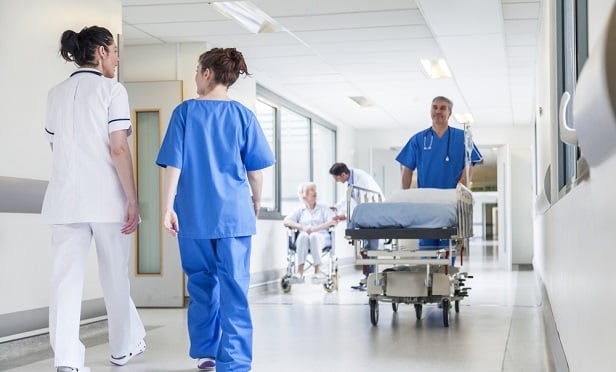BOSTON (AP) — Neil Anderson says the headaches, dizziness and palpitations began shortly after Wind One, a 400-foot high wind turbine, began operating about a quarter mile from his Falmouth home. So did sleep disruptions, ringing in his ears and elevated blood pressure.
Anderson was among a number of Massachusetts residents who on Tuesday disputed a recent report from a state-appointed panel of experts that reviewed existing scientific evidence and found no serious health risks associated with living near wind turbines.
Recommended For You
"Despite the conclusions of this expert health panel, wind turbines that are close to residences make people sick," Anderson told the Statehouse hearing, adding that nearly all of his symptoms disappeared when the town-owned, 1.6 megawatt turbine was temporarily shut down in November amid complaints.
Environmentalists, industry officials and other wind energy advocates were equally strong in their praise of the panel's report, telling state officials who called the meeting that the findings were a resounding endorsement of wind as a safe and clean alternative to other types of energy.
"When we say no to wind in Massachusetts we are saying yes to a bunch of dirty energy sources like coal, like gas, like nuclear power" that bring health risks far greater those posed by wind power, said Emily Rochon, a Northeastern University law student who attended the meeting with other members of the group Wind Action Committee.
The report, commissioned by state environmental and public health officials and released in January, said there was no evidence noise or low-frequency vibrations from turbines trigger health problems like those described by Anderson and other neighbors, effects sometimes collectively referred to as "wind turbine syndrome."
The report did raise the possibility that sound generated by turbines could be annoying to nearby residents or cause sleep disruptions, and recommended that Massachusetts adopt noise limit guidelines similar to those in some European countries.
State officials stressed Tuesday that they had not yet formally accepted the panel's findings nor reached any conclusions about where new wind turbines should be constructed in Massachusetts. Gov. Deval Patrick has made wind energy a key tenet of his strategy to move the state away from carbon-emitting power plants.
Critics have questioned both the methods and motivations of the panel, chastising it for relying on a review of data from previous studies done around the world rather than visiting the sites and conducting interviews with state residents who have complained of wind turbine syndrome.
Eleanor Tillinghast, a Mount Washington resident and member of the statewide coalition Windwise Massachusetts, accused the panel of "passing off junk science as real science."
The group has called for a moratorium on the construction of new land-based wind turbines until all potential health risks are addressed. Projects have been proposed for several other communities in the state, including Fairhaven, Lenox and Plymouth.
Critics have also suggested that at least two members of the state-appointed panel had previous ties to the wind energy industry, a claim strongly denied by the panelists and the state officials who appointed them.
Some wind energy advocates, while acknowledging that they did not live in the shadow of a turbine, said the whooshing sound of turbine blades was not annoying but actually soothing — akin to ocean waves or a babbling brook.
But Falmouth resident Kathryn Elder dismissed any notion that health concerns were more perception rather than reality.
"It's not my perception, it's not my opinion, and it certainly isn't annoyance that wakes me up repeatedly at night, or has caused myself and members of my family to have extreme anxiety and other physical issues in response to living close to the turbine," said Elder, who urged the state to adopt "hard and fast regulations" that would require turbines to be kept a safe distance from residential areas and set strict noise limits.
© Touchpoint Markets, All Rights Reserved. Request academic re-use from www.copyright.com. All other uses, submit a request to [email protected]. For more inforrmation visit Asset & Logo Licensing.






